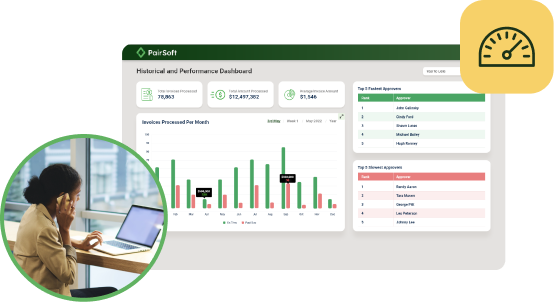
Wadih Pazos
Wadih founded both PairSoft and PaperSave. He is an avid technologist who specializes in streamlining operations and maximizing productivity.
View all posts by Wadih PazosWadih Pazos

Should firms not have completely digitized and healthily automated BPM, document management and workflow protocols in place, analytics solutions are simply not going to add much value to the firm, and could even end up causing wasteful spend. A new report showed that the next stages of intelligence technology are underway, and firms must prepare their current policies, platforms and strategies to embrace the solutions and gain a competitive advantage from them.
International Data Corporation recently predicted spending on cognitive systems to reach $31.3 billion globally by 2019, which represents massive growth given that fact that these technologies are still relatively young in the marketplace. The analysts define cognitive systems as solutions that have the functionality of analytics platforms, advanced document management tools and more, with features ranging from hypothesis generation and enterprise search to visualization and machine learning.
Suffice it to say that these technologies are likely to streamline and centralize what has thus far been relatively disparate system management, with firms using analytics platforms alongside separate document management tools. According to the researchers, banking, retail and healthcare will be investing the most in these technologies in the coming years, with the former already possessing one-fifth of the share of total global spend today.
“Unstructured and semi-structured data is fueling a renaissance in the handling and analysis of information, resulting in a new generation of tools and capabilities that promise to offer intelligent assistance, advice, and recommendations to consumers and knowledge workers around the world,” IDC Cognitive Systems and Content Analytics Research Director David Schubmehl explained. “These cognitively enabled solutions are being developed and implemented on cognitive software platforms that offer the tools and capabilities to extract and build knowledge bases and knowledge graphs from unstructured and semi-structured information as well as provide predictions, recommendations, and intelligent assistance through the use of machine learning, artificial intelligence, and deep learning.”
Opportunities will be plentiful for firms with strong internal processes and performances ahead of cognitive system deployment.
Intelligence solutions have become far more widely used in the past few years, helping to improve decision-making, derive the most value from stored information and bolster the transparency of enterprise operations. At the same time, modern document management technologies – especially those based in the cloud – are enhancing their interoperability and functionality, presenting firms with opportunities to step into the modern age of information governance and BPM.
By first leveraging the support of a trusted managed services firm to digitize, automate and modernize BPM, workflows and document management, companies will be strongly positioned to capitalize on the next generations of analytics.


Many organizations start with manual receipt handling, fragmented card feeds and slow AP processes. Implement AI agents to auto-capture receipts, route approvals, enable punch-out buys and post to the ERP.
Result: faster batching, fewer errors and cost savings. “This saves us hours every month.”
Many organizations face slow, paper-heavy AP and fragmented procurement that waste time and inflate costs. AI Agents can automate approvals, PO matching and record sync to improve speed, accuracy and control. Client quote: “It freed up hours and made our process reliable.”
Operational drag and rising costs slow growth: teams waste time on manual tasks, misaligned priorities and opaque processes. AI Agents help automate routine work and coordinate actions across teams. “We’ve lost time to repeats and handoffs,” says a typical client.
Companies struggle with manual procurement, fragmented approvals, and costly integrations that slow growth and obscure spend. Our AI Agents streamline requisitions, POs, and invoice matching to cut manual work and improve visibility. “We were wasting time and missing insights,” says a client.

Many teams start with fragmented PO/AP systems, manual matching and delayed financial reporting. Deploying AI agents to automate PO checks, real-time encumbrance tracking and invoice matching reduces processing time and errors, delivering live budgets and faster closes. “Finally, we can see current balances and approve instantly.”
Many companies juggle growing invoice volumes and legacy systems. They struggle with manual processes, compliance gaps and limited headcount. Our AI Agents automate integrations, enforce rules and surface exceptions. The typical outcome: faster closes and measurable ROI. “We stopped chasing invoices.”